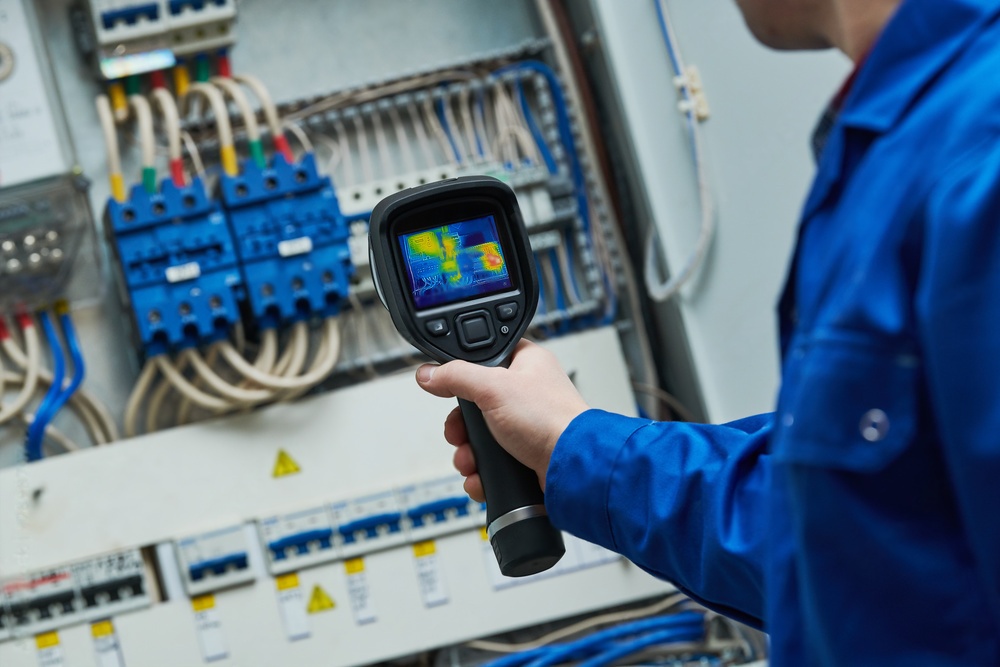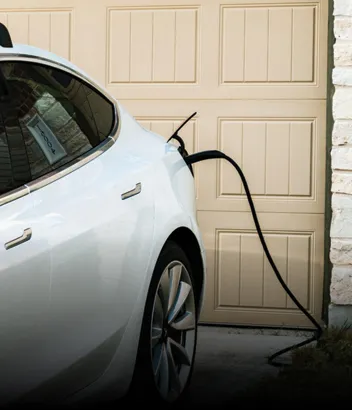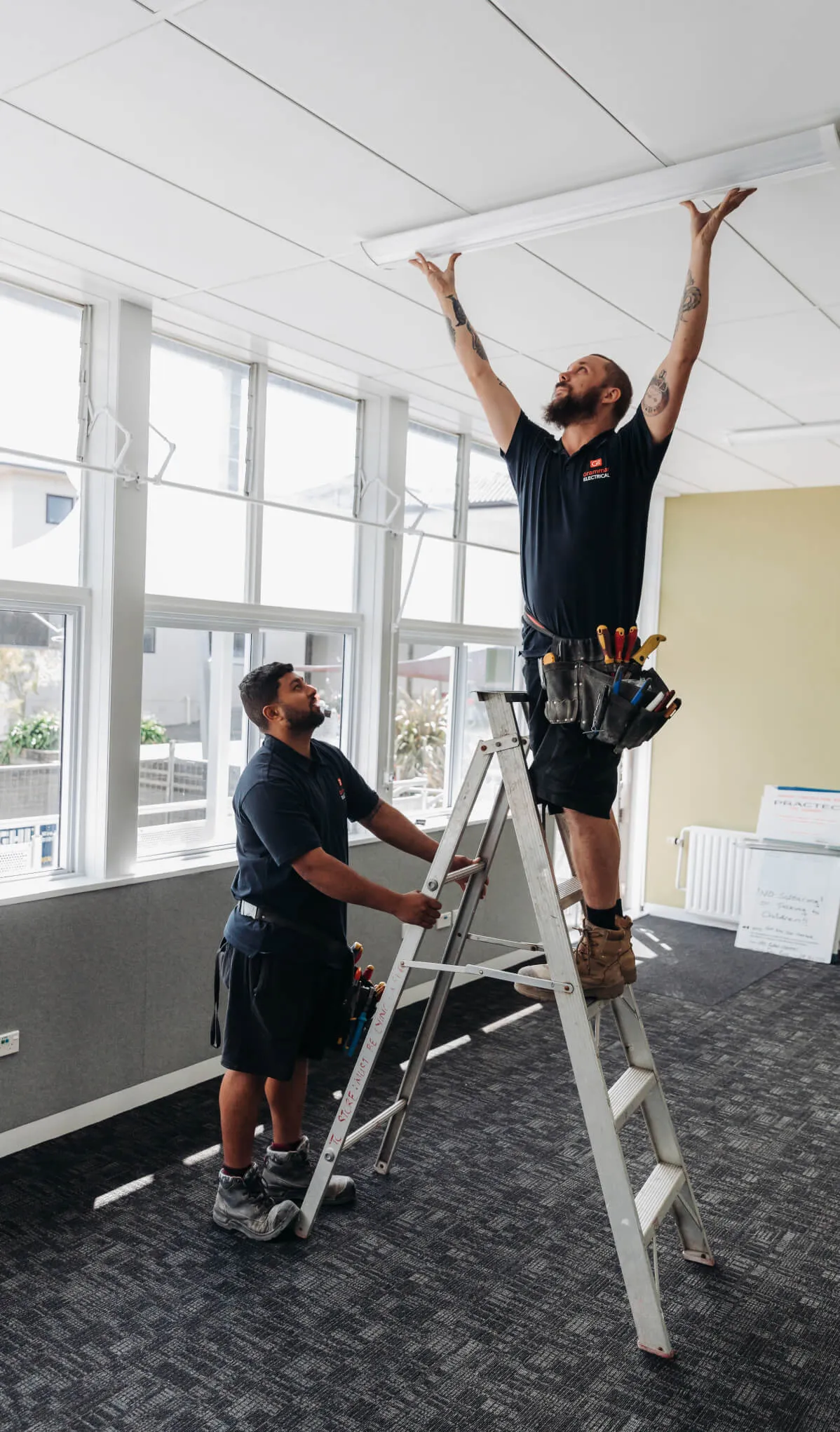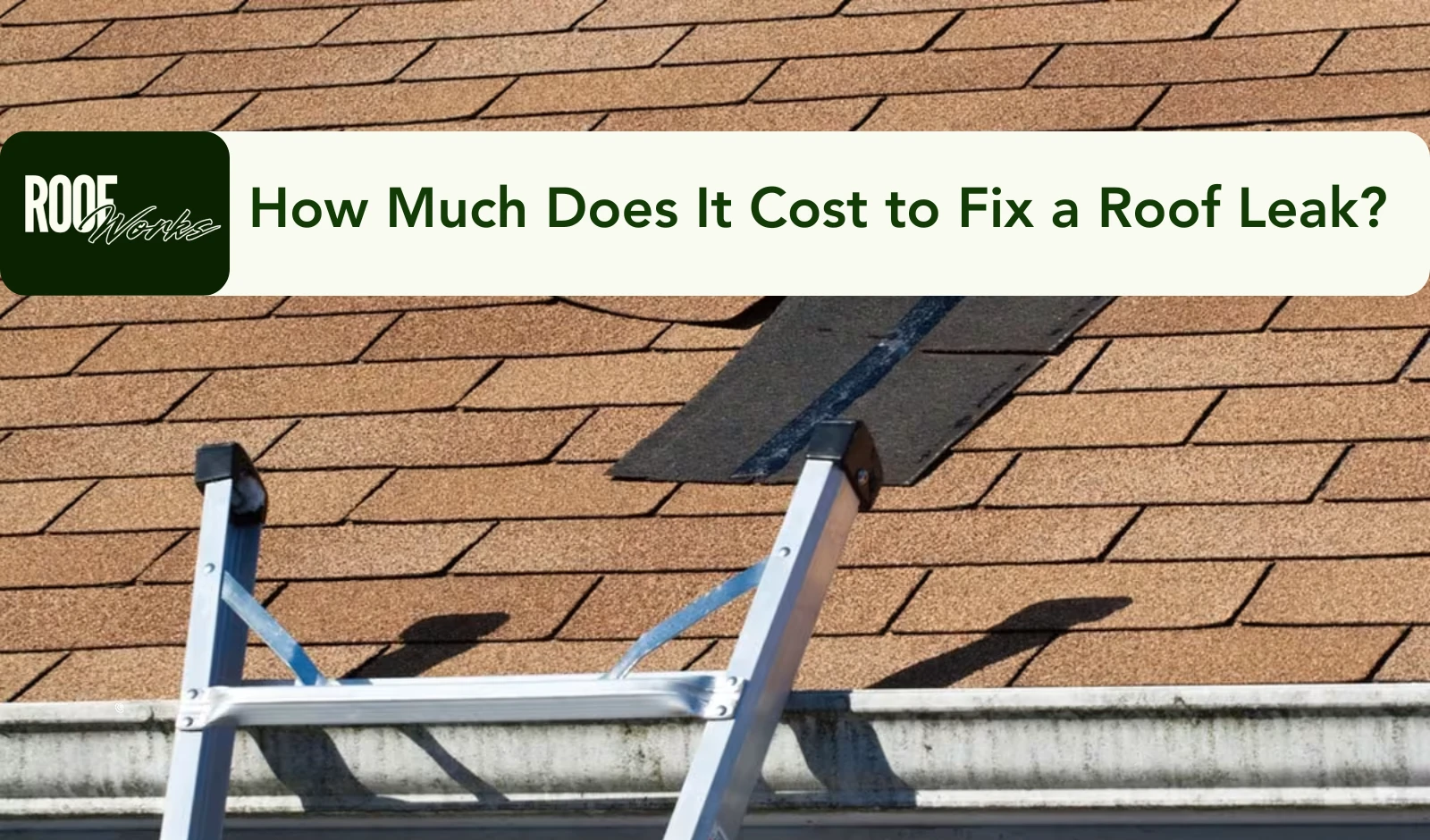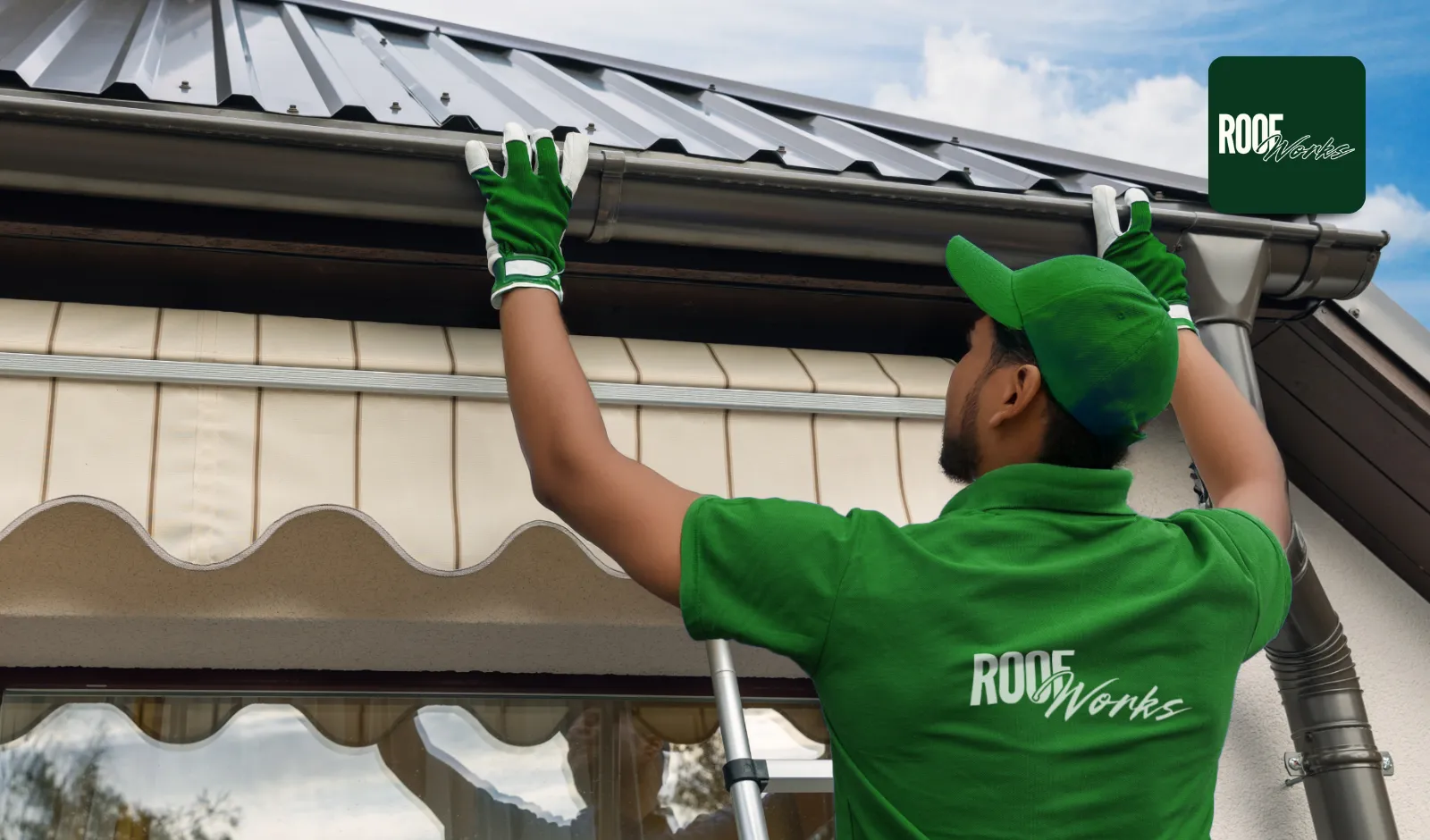


Homeowners and businesses across New Zealand often ask about roof replacement costs in NZ when planning for property improvements. While it’s natural to focus on price, understanding the many factors that influence replacement costs is essential. Everything from the type of roof material to labour costs and building code requirements can significantly affect the total costs of roof installation.
This guide explains what impacts the cost to replace a roof, explores materials such as metal roofing and clay tile, and highlights why working with reliable roofing companies ensures your project is done right.

Why Roof Replacement Is Important
Your roof is one of the most critical parts of your home. Over time, exposure to rain, wind, sun, and general wear can cause damage. Common signs you may need to replace a roof include:
- Leaks or visible water damage inside your home.
- Missing, cracked, or broken tiles or shingles.
- Loose or damaged flashing around chimneys, skylights, or vents.
- A sagging roofline indicating structural problems.
- Moss, mould, or rot that signals moisture issues.
Delaying roof replacement can lead to serious problems. Water damage doesn’t just harm your ceiling, it can affect insulation, framing, and even electrical systems. A well-executed roofing project prevents these issues and ensures long-term protection.

Key Factors Affecting Roof Replacement Cost
When asking how much does it cost to replace a roof, remember that no two projects are the same. The replacement costs depend on multiple factors including:
- Roof size and design - Larger or complex roofs naturally increase total costs.
- Type of roof material - Metal roofing, clay tile, and asphalt shingles each have different price ranges.
- Labor costs - Skilled tradespeople charge differently depending on experience and demand.
- Material costs - Prices shift based on availability, transport, and quality.
- Building code compliance - NZ codes may require upgrades to insulation or framing.
- Removal and disposal - Old roofing must be stripped and safely disposed of, which adds to the project scope.
These factors, including hidden elements, all combine to shape the final figure for roof replacement.
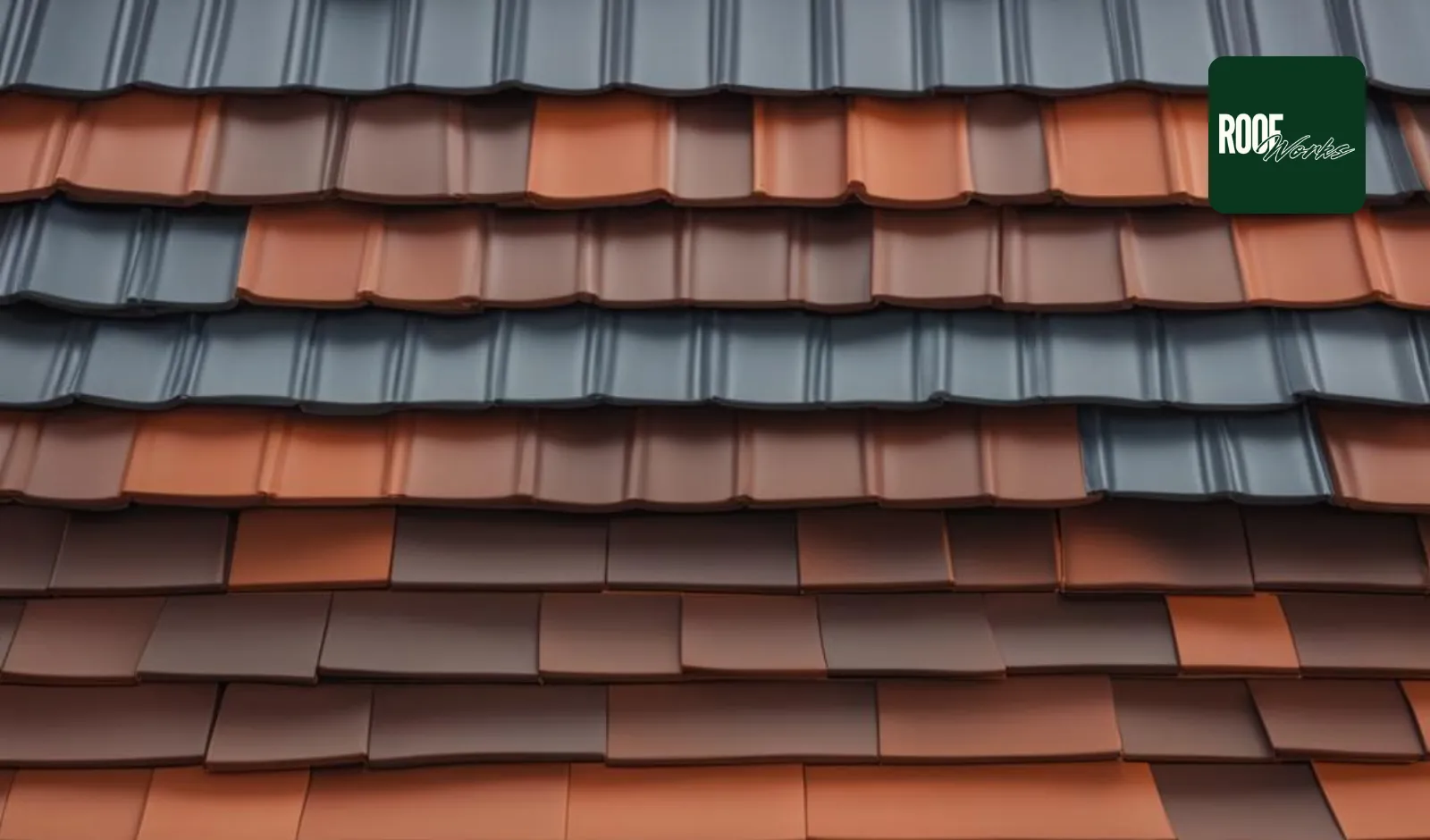
Types of Roofing Materials
Your choice of material is one of the most influential aspects of the costs of roof replacement.
- Metal roofing: Highly durable, energy-efficient, and often considered cost effective over time.
- Clay tile: A classic material known for beauty and longevity, though heavier and requiring expert installation.
- Asphalt shingles: A widely used option balancing affordability and versatility.
- Concrete tiles: Very strong but also heavy, sometimes needing reinforcement.
- Slate and synthetic roofing: Premium choices with unique aesthetics but higher replacement costs.
Each type of roof material offers different benefits and long-term performance, influencing not only replacement costs but also ongoing maintenance.
Labor Costs and Professional Roofing Companies
Labor is a major factor in roof replacement cost. Skilled roofing contractors ensure proper installation, compliance with building code, and long-lasting results.
Labor costs vary due to:
- The size and design complexity of your roof.
- Regional differences in pay rates.
- Experience and reputation of the roofing companies.
Hiring licensed and insured contractors ensures safety and accountability. Homeowners and businesses alike can rely on experienced professionals who balance expertise with attention to detail, making the entire roofing project smooth and reliable.
Material Costs and Project Planning
Material costs can significantly affect the overall cost to replace your roof. Premium materials like clay tile or slate may increase the investment, while more common options like asphalt or metal roofing can be more cost effective.
Other considerations include:
- Delivery charges, especially for heavier materials.
- Supply chain delays in high-demand seasons.
- Disposal of packaging and offcuts.
A well-planned project takes all these material-related factors into account.
Hidden Costs in Roof Replacement
Sometimes, issues aren’t visible until the roofing project begins. Common hidden costs include:
- Water damage beneath old roofing materials.
- Structural repairs to roof framing or supports.
- Adjustments for new building code requirements.
- Temporary measures if weather delays the installation.
These additional steps ensure your new roof lasts longer and protects your home.
Steps in a Roof Replacement Project
Understanding the roof installation process helps homeowners prepare for the journey:
- Inspection and consultation - Roofing companies like Roof Works assess your current roof.
- Planning and permits - Necessary approvals are secured based on building code.
- Removal and disposal - Old roofing is stripped and disposed of responsibly.
- Roof installation - New materials are carefully installed.
- Final checks - Ensuring compliance, safety, and quality standards.
Each stage plays a role in the total costs of the roofing project.

Cost-Effective Strategies When Replacing Your Roof
Although roof replacement is a significant investment, there are ways to keep it cost effective:
- Choose long-lasting materials like metal roofing for better value over time.
- Schedule projects in seasons with fewer weather risks.
- Maintain your roof regularly to prevent major issues.
- Work with roofing companies that provide clear warranties.
By planning ahead, you can manage replacement costs while ensuring durability.
Average Cost Considerations Without Figures
Homeowners and businesses frequently ask, “how much does it cost to replace a roof?” The answer depends on all the factors discussed, labor costs, material costs, building code requirements, and hidden repairs.
The average cost of replacing your roof is best understood as an investment in your property’s safety and value. Total costs go beyond visible materials; they include preparation, removal, disposal, and compliance with regulations. It’s also important to remember that unexpected issues, like storm damage requiring emergency roof repair, can influence the overall project and may lead to adjustments in scope or timing.
How to Select the Right Roofing Company in NZ
Choosing the right contractor is crucial to ensuring a smooth project. When evaluating roofing companies, consider:
- Reputation and customer reviews.
- Transparency in replacement costs.
- Licensing, insurance, and building code compliance.
- Warranties on workmanship and materials.
Roof Works is known for reliability, professional service, and quality roof installation. Partnering with such trusted roofing companies guarantees peace of mind.
Conclusion
Roof replacement is more than just a construction task, it’s a safeguard for your home’s future. A strong, reliable roof protects against water damage, improves energy efficiency, and preserves the value of your property.
From selecting the right type of roof material to accounting for labor costs, material costs, and total costs, every factor matters in ensuring your roofing project is successful. While the roof replacement cost NZ homeowners face can vary, the outcome should always be a durable, secure, and cost effective solution.
When you work with the experienced professionals at Roof Works, you’re guaranteed a roof that complies with all regulations, offers reliable protection, and keeps your home safe well into the future.
Ready to Replace Your Roof?
Don’t wait until leaks or structural issues turn into costly problems. Whether it’s a residential or commercial property, our expert team is here to make your roofing project simple, safe, and stress-free.
Call us today for fast, reliable service, or book online to save $15.
Got a question?
Contact us for a FREE installation quote or book your job online today.
Same Day Service Guarantee - Terms & Conditions

The "Same Day Service Guarantee or it's Free" applies to:
a. Residential work and Commercial only.
b. Jobs specified as needing same day service when booking a job by phone or online.
c. Residential and Commercial work booked with Grammar Electrical:
i) Before 11:00AM
ii) For calls or online bookings received after 11:00AM, the customer will be offered a job. Booking for the next business day and normal callout fees ($170+ GST) will apply.
iii) Any other jobs booked outside business hours (9:00AM - 5:00PM Monday- Friday) will incur after hours charges.
iv) This offer is excluded for jobs booked on New Zealand public holidays.
d. If Grammar Electrical are unable to attend on the same day (within 24 hours) for a job booked by the customer, the standard callout fee of $170 + GST will be waived and is free, but all other normal charges, fees and expenses will apply to perform the Electrical Services and to provide any products/materials concerning those services.
e. The Standard Callout Fee will be deducted from your bill as long as you pay within your invoice's due date. The callout charge is applicable if your invoice is overdue.
f. If Grammar Electrical are willing and able to perform the Service or provide the Goods on the same day the job is booked, however the Customer for whatever reason does not give access to their property on the day, Grammar Electrical will be deemed to have complied with it's "Same Day or it's Free" guarantee and shall be entitled to charge the customer the standard call-out fee.
g. This offer is not a guarantee of work being completed. The completion of the job will depend on stock availability and also the amount of work required.


.webp)
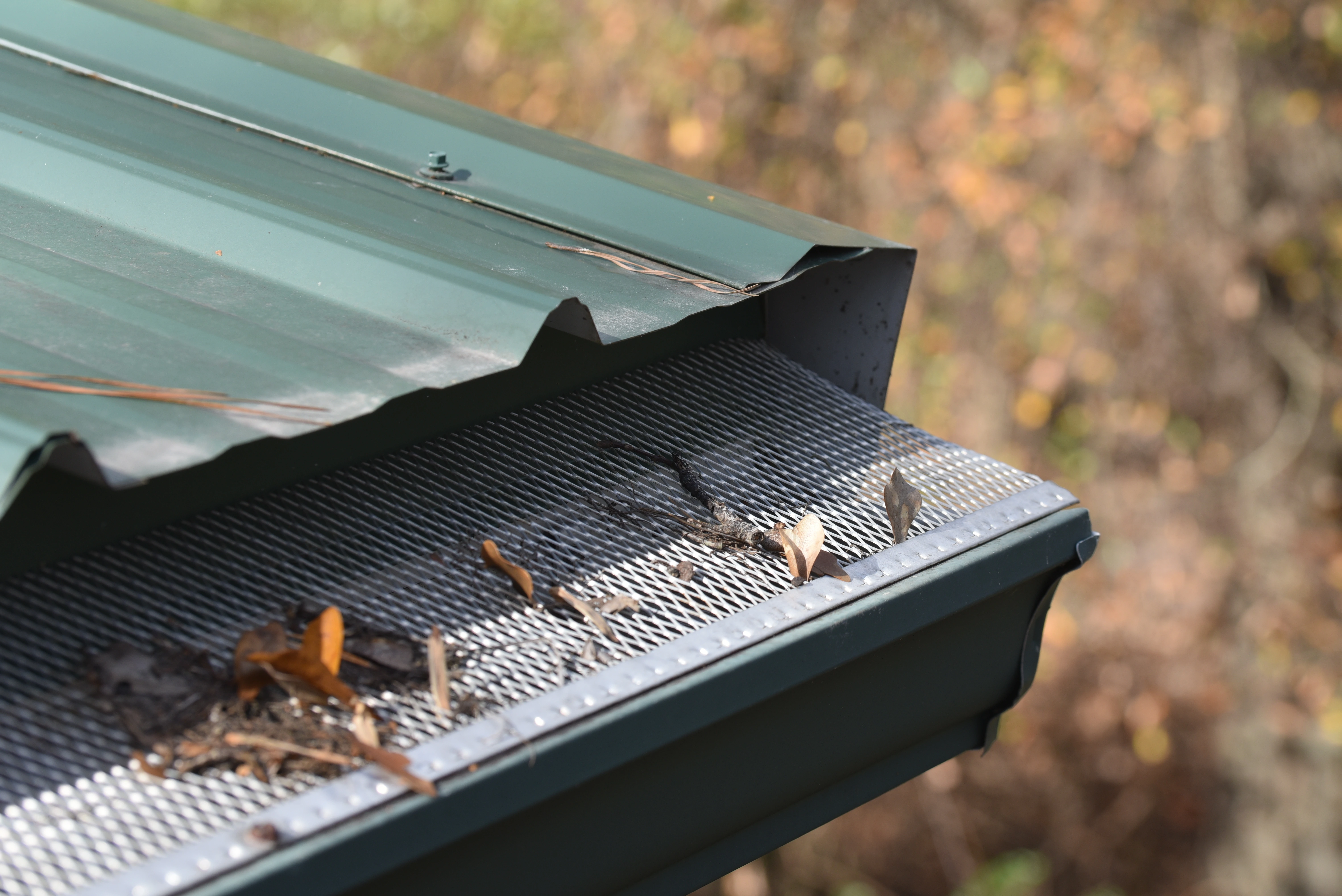
.webp)
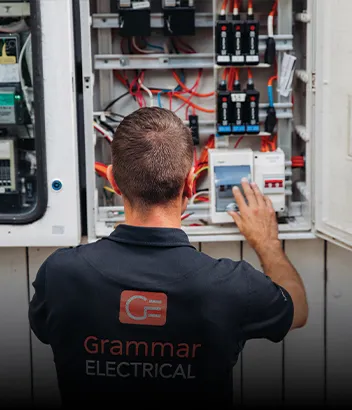
.webp)
